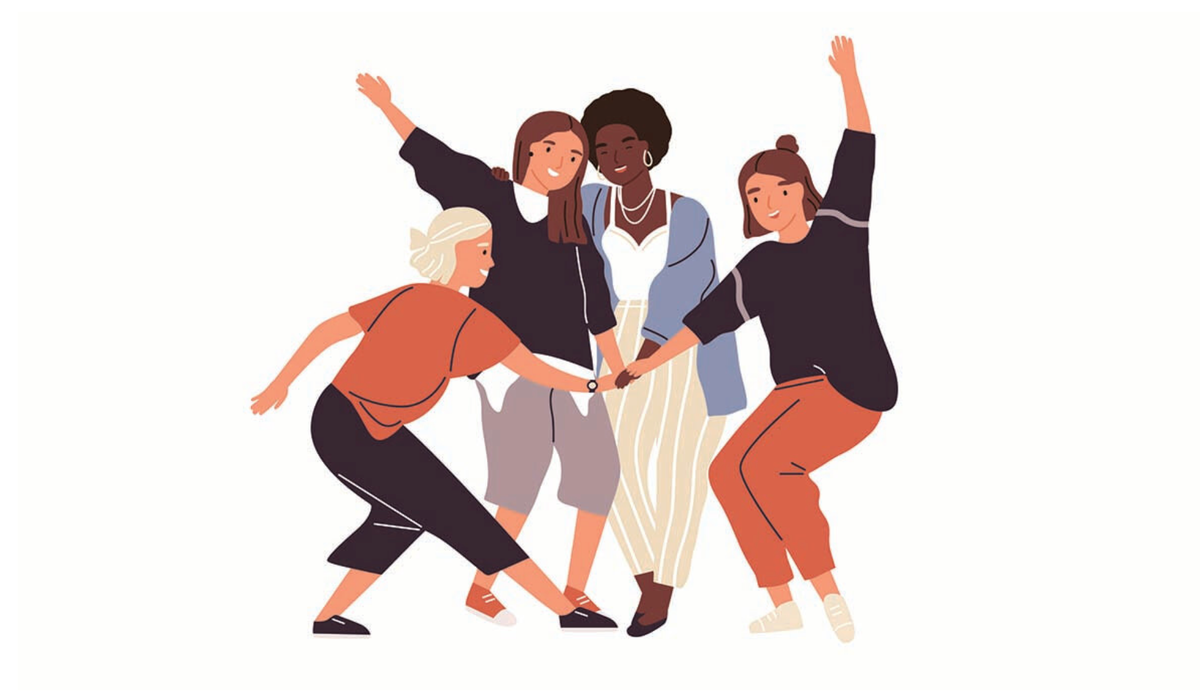Your brain watches the people around you to help work out who you are

Who you are, or rather, who you think you are, relies on who other people think you are. Here is a completely unscientific anecdote to demonstrate this.
When I got to secondary school, a certain art teacher (who will remain nameless) took a disliking to me. Side note: the disliking was entirely down to my brother being a complete arse in art class, and that teacher assumed I'd follow suit.
Her disliking manifested in me being unfairly labelled as a disruptor. I was frequently singled out for talking, or not listening and for being a general nuisance. And maybe I was. But the impact of that art teacher's belief that I was naughty by name, naught by nature, over time, started to influence who I felt I was in that class.
I was a bad boy. And my god, I was going to live up to the reputation that had been handed to me. While I've spent my adult years trying to work out what that meant to me as a person, the good people over at UCL have been putting pen to paper to find out that very thing, in a far more precise and nuanced way.
According to a recent study published in Nature Communications, our brains not only look to others to help work out who we are, it also copies those ideas.
I copy, therefore I am 🖨️
Our ability to copy the minds of others is hugely important. It's one of the key aspects of what makes us social beings. It's why we're more likely to laugh when we see other people laugh, and it's why we're more likely to cry when others are crying. Emulating others is what keeps us together.
When this process goes wrong, it can be devastating. You might become unable to empathise with someone, or you might be so susceptible to other people’s thoughts that your own sense of “self” becomes fragile.
Experimental psychologists can measure our ability to think like others in an experiment called a “false belief task”. It's weird and interesting, it suggests people have the ability to influence the minds of others, just by thinking about it.
Neuroscientists have been looking at this idea up close. Simulation theory is the idea that when I put myself in your shoes, my brain tries to copy how you're feeling. It turns out our brains can simulate the thoughts of a social partner.
Scientists have shown that if you observe another person receive a reward, like food or money, your brain activity is the same as if you were the one receiving the reward.
Blurring the boundaries 😶🌫️
This means that the boundary between the self and the other in the brain is not fixed, but flexible. The brain can learn to change this boundary. This might explain the familiar experience of two people who spend a lot of time together and start to feel like one single person, sharing the same thoughts.
It might also explain why people in long term relationships with partners, family or friends, can start to beleive that the negative ideas those people hold for us, start to become part of who we think we are.
On a societal level, it may explain why we find it easier to empathise with those who’ve shared similar experiences to us, compared with people from different backgrounds.
Why is this important? Because it shows that who we think we are is flexible, and can be highly influenced by other people. When used correctly, it could help tackle bigotry, racism, and help people struggling with mental health disorders feel part of a crowd again.
Who knew a year 8 art teacher could teach me so much?
Ok, where can I learn more? 📚
- More detail on Simulation Theory - prepare to have your mind blown.
- Why watching people you care about being rewarded can feel like you're being rewarded too.
- How children learn empathy - this is a really good way into this idea of our brains copying the brains of others.





